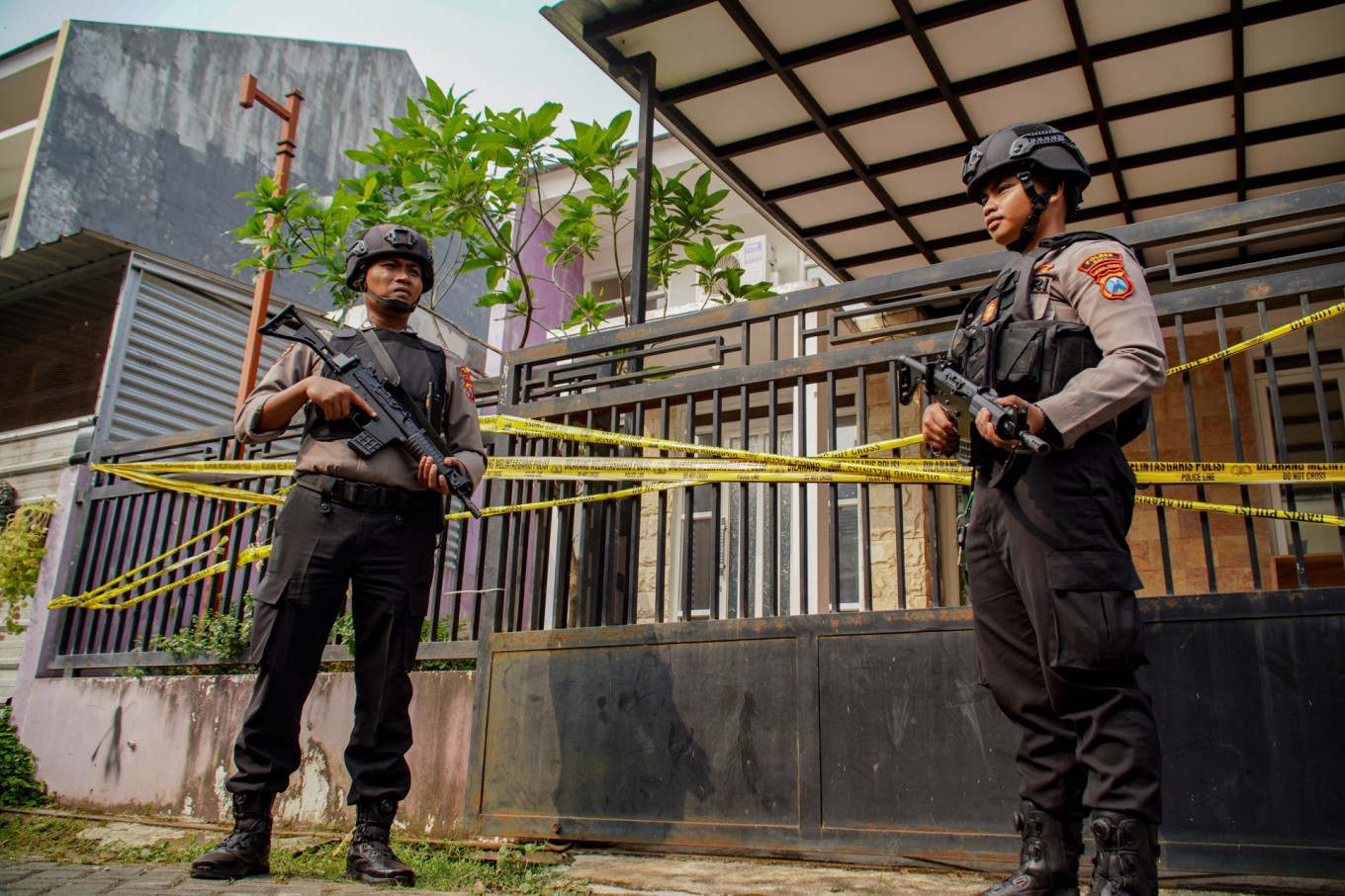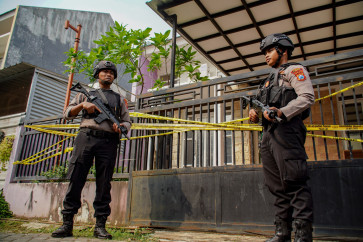Popular Reads
Top Results
Can't find what you're looking for?
View all search resultsPopular Reads
Top Results
Can't find what you're looking for?
View all search resultsA road map for collective deradicalization: A challenge for Prabowo
In the Pantura, stretching from Brebes to Batang, there are approximately 140 JI-linked ustad, while Grater Banyumas has around 150.
Change text size
Gift Premium Articles
to Anyone
 Police officers stand guard in front of a house used by a terror suspect in Batu, East Java, on Aug. 1, 2024. A joint team of the National Police's Densus 88 counterterrorism unit and the East Java Police seized evidence from the house, including liquid explosive and other bomb-making materials, which was rented by an alleged terrorist arrested by the police on July 31. (Antara/Irfan Sumanjaya)
Police officers stand guard in front of a house used by a terror suspect in Batu, East Java, on Aug. 1, 2024. A joint team of the National Police's Densus 88 counterterrorism unit and the East Java Police seized evidence from the house, including liquid explosive and other bomb-making materials, which was rented by an alleged terrorist arrested by the police on July 31. (Antara/Irfan Sumanjaya)
A
s President Joko “Jokowi” Widodo's administration winds down, Indonesia's next leader, Prabowo Subianto, will inherit a long-standing challenge: addressing the enduring threat posed by Jemaah Islamiyah (JI).
Despite decades of counterterrorism efforts, JI has demonstrated remarkable resilience and adaptability, maintaining its ideological and operational networks. The incoming government must prioritize collective deradicalization, particularly moderating JI’s teaching influence within pesantren (Islamic boarding schools) and addressing the group's ideological reach across Indonesia.
While individual deradicalization has made progress, collective deradicalization presents a greater challenge. JI’s survival is deeply rooted in its extensive network of 42 pesantren, educating more than 16,000 students. This cultural influence goes beyond just violent activities, embedding radical ideologies within the fabric of religious education in Indonesia. As such, collective deradicalization must address not just individuals but also the broader social structures that sustain JI’s influence.
Globally, collective deradicalization efforts have yielded mixed results. In Bullets to Ballots: Collective De-Radicalisation of Armed Movements, Omar Ashour highlights that movements such as Egypt’s Gama’a al-Islamiyya (GI) successfully transitioned from militancy to peaceful engagement. GI’s leaders issued ideological revisions renouncing violence, which helped the group shift toward political participation.
This model offers valuable lessons for Indonesia, where dismantling JI’s militant infrastructure must be paired with tackling its ideological and educational networks.
GI’s transformation was driven by a combination of military pressure and ideological shifts. In the 1990s, the group publicly renounced violence and moved toward peaceful political activities. For Indonesia, a similar shift within JI would require addressing the ideological justifications for violence found in texts such as Al-Jami' al-Sharif fi Talib al-'Ilm, which provide theological grounds for jihadist activities.
However, unlike GI, JI’s influence is deeply entrenched in Indonesia’s pesantren system. Reforming these schools requires careful coordination between national and local authorities. Indonesia’s National Action Plan for the Prevention of Violent Extremism (RAN PE), outlined in Presidential Regulation No. 7/2021, provides a framework for these efforts. Yet a lack of alignment between central and regional governments has slowed progress. Many local officials, who will be responsible for working with former extremists, still lack a full understanding of the RAN PE’s objectives. As a result, deradicalization efforts at the community level remain fragmented.


















